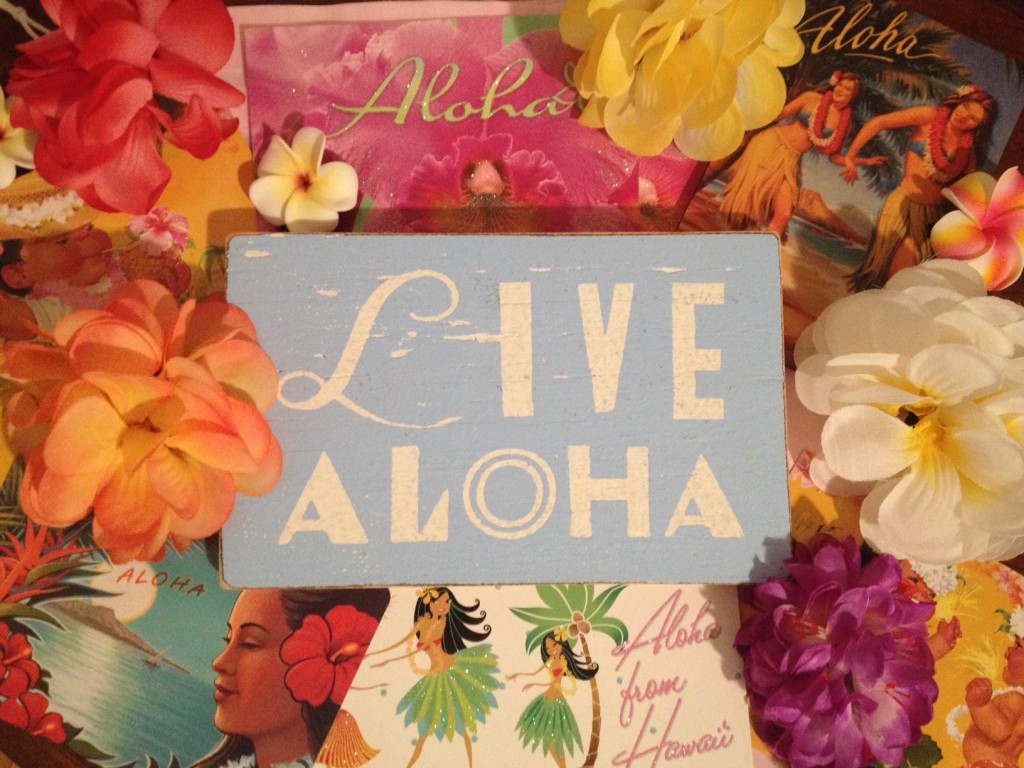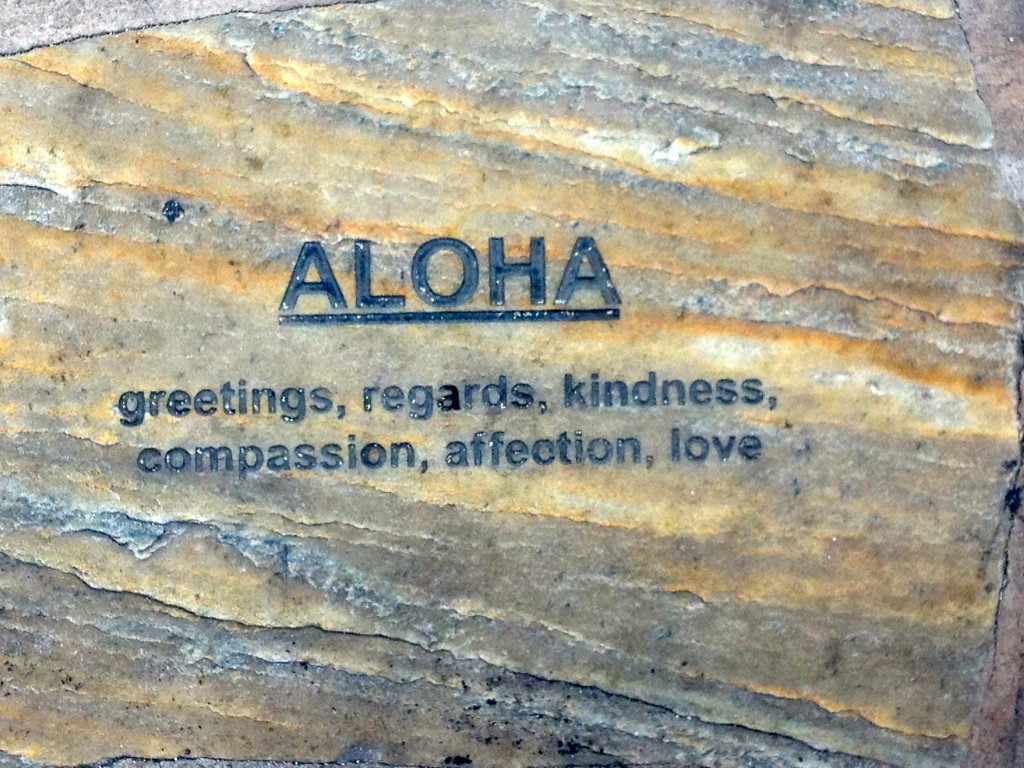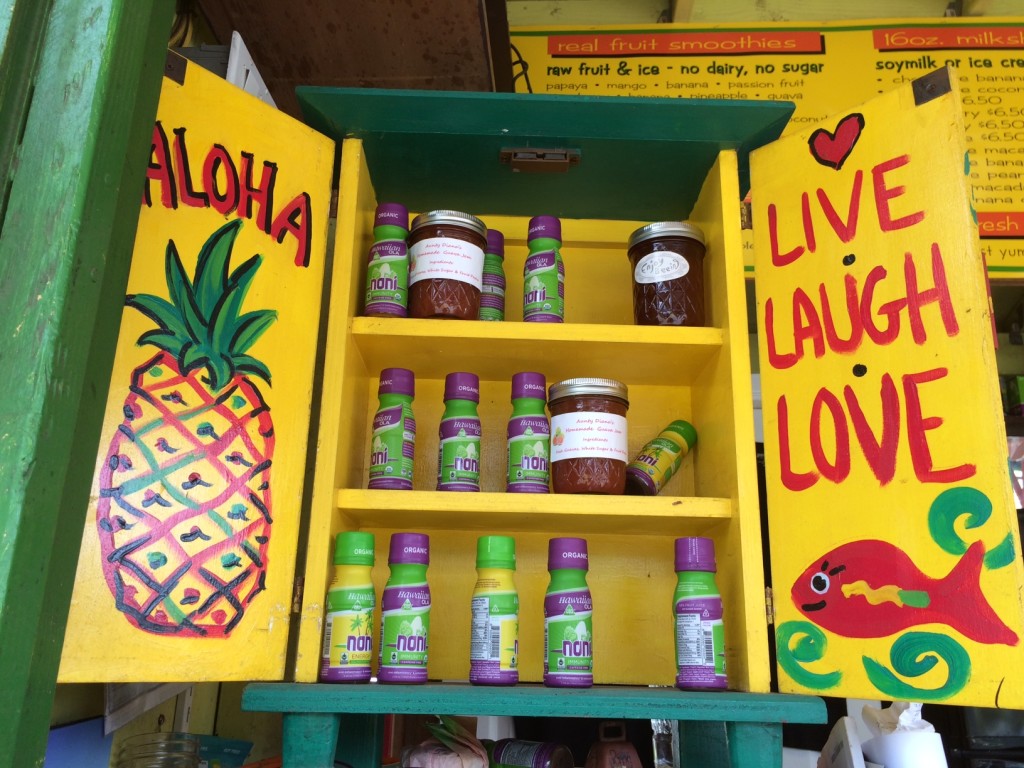 “Language is the road map of a culture. It tells you where its people come from and where they are going.” –Rita Mae Brown
“Language is the road map of a culture. It tells you where its people come from and where they are going.” –Rita Mae Brown
Never before have I given so much thought and consideration to the symbolic nature of language as I did during a weeklong stay in O’ahu, one of the four main islands of a state that became the 50th in the nation in 1959.
Having faced various, and at times comical, communication barriers during travels in foreign countries, it seems rather odd thatHawai’i – an English speaking state – would end up having such a powerful impact. But, as was quickly made evident by the hospitality and generosity of a very friendly people, the Hawaiian language is more than just a fun sounding addition for vacationers in a paradisiacal setting: it’s a true representation of the spirit, philosophy and culture of the Hawaiian people.
Even the word “Aloha”, perhaps the most commonly known Hawaiian term, has a deeper meaning than its typical association as a form of “hello” and “goodbye.” The word itself comes from “Alo”, meaning “presence, front and face” and “ha” meaning “breath” – or, put together, “the presence of breath.”
When saying “aloha” to someone, what you are really saying is that you are acknowledging their presence before you and are greeting them with due kindness, love and respect – with no obligation in return.
As we soon came to realize, Aloha is just as much a way of living in Hawai’i as it is a salutation or goodbye. It is a friendly “spirit” that sends and receives positive energy, symbolizing harmonious, modest and compassionate living. In fact, “The Aloha Spirit” or “The Way of Aloha” is considered a “rule” or “law” in Hawai’i that all citizens and government officials are obligated to follow to ensure that others are treated with deep care and respect, just as their ancestors and old kahunas (priests or wise men) did.
Hawaiian children from generations ago were taught to recite and memorize a “pledge” on the spirit of Aloha, reading:
“Aloha is being a part of all, and all being a part of me. When there is pain – it is my pain. When there is joy – it is also mine. I respect all that is as part of the Creator and part of me. I will not willfully harm anyone or anything. When food is needed I will take only my need and explain why it is being taken. The earth, the sky, the sea are mine to care for, to cherish and to protect. This is Hawaiian – this is Aloha!”
 Eventually, this pledge evolved into a condensed “code of ethics”, still in use today, comprising the following Hawaiian words and meanings*:
Eventually, this pledge evolved into a condensed “code of ethics”, still in use today, comprising the following Hawaiian words and meanings*:
A – “Akahai”, kindness, to be expressed with tenderness;
L – “Lokahi”, unity, to be expressed with harmony;
O – “Oluolu”, agreeable, to be expressed with pleasantness;
H – “Haahaa”, humility, to be expressed with modesty; and
A – “Ahonui”, patience, to be expressed with perseverance
It is little wonder, then, that Aloha – embodying and living all that is good, kind and humble – is considered the “most beautiful Hawaiian word”, offering a moral compass and guiding light that has, as far as I can tell, been successfully passed down from generation to generation, instilled in the attitude and conduct of native Hawaiians today.
 Having recently written a piece about why tradition matters, I can’t help but note The Aloha Spirit as a perfect example of the wisdom, knowledge and insight one can glean from “traditional” ways of thinking or behaving. In fact, I can hardly think of any better qualities to work towards over a lifetime than those advocated by The Aloha Spirit: Compassion. Kindness. Humility. Patience. Love. Respect.
Having recently written a piece about why tradition matters, I can’t help but note The Aloha Spirit as a perfect example of the wisdom, knowledge and insight one can glean from “traditional” ways of thinking or behaving. In fact, I can hardly think of any better qualities to work towards over a lifetime than those advocated by The Aloha Spirit: Compassion. Kindness. Humility. Patience. Love. Respect.
As Kahuna David Bray (1889-1968) once said, “Come forward, be in unity and harmony with your real self, God, and mankind. Be honest, truthful, patient, kind to all life forms, and humble.”
*There are many acronymic variations; some of our favorites are below:
A – “Aloha” means welcome; what I have you may have, share with me.
L – “Loko maika’i” means what I say comes from my heart; I have good intentions.
O – “Olu’olu” means happy; happy doing for others, an Hawaiian heritage.
H – “Ha’aha’a” means humility & meekness; we are happy to serve
A – “Aloha” means love; near or far, you are always in our heart.
“Aloha to learn what is not said, to see what cannot be seen & to know the unknowable.” –Queen Lili‘uokalani, the last monarch and only queen regnant of the Kingdom of Hawai’i (1838-1917)
Continue delving into All Things Hawaiian with:
-
a reflection on our travels in O’ahu
-
some interesting facts about Hawai’i
-
why Kona coffee is the most valued coffee in the world
-
what makes the Plumeria flower so special
-
a glimpse into Mark Twain’s “Letters From Hawaii“
-
and the history behind legendary Hawaiian singer Israel Kamakawiwo’ole
Delve deeper into all things life wisdom with:
-
Gift from the Sea
-
Social Graces: Words of Wisdom on Civility in a Changing Society
-
8,789 Words of Wisdom
-
Grit: the Power of Passion and Perseverance
-
Originals: How Non-Conformists Move the World
-
The Road to Character
-
The Shepherd’s Life
-
Napoleon: A Life
-
Life’s Journey According to Mister Rogers
-
the Knights Code of Chivalry
-
and from these military excerpts, creeds and poems
-
in addition to these quotes about the importance of planning
-
and these quotes on teaching, thinking and learning
-
finally, a personal message for college graduates
Very interesting, I would love to know more about the etymology of other popular salutations. They are one of those traditions that are easily taken for granted and would be appreciated more if we understood the history behind them.